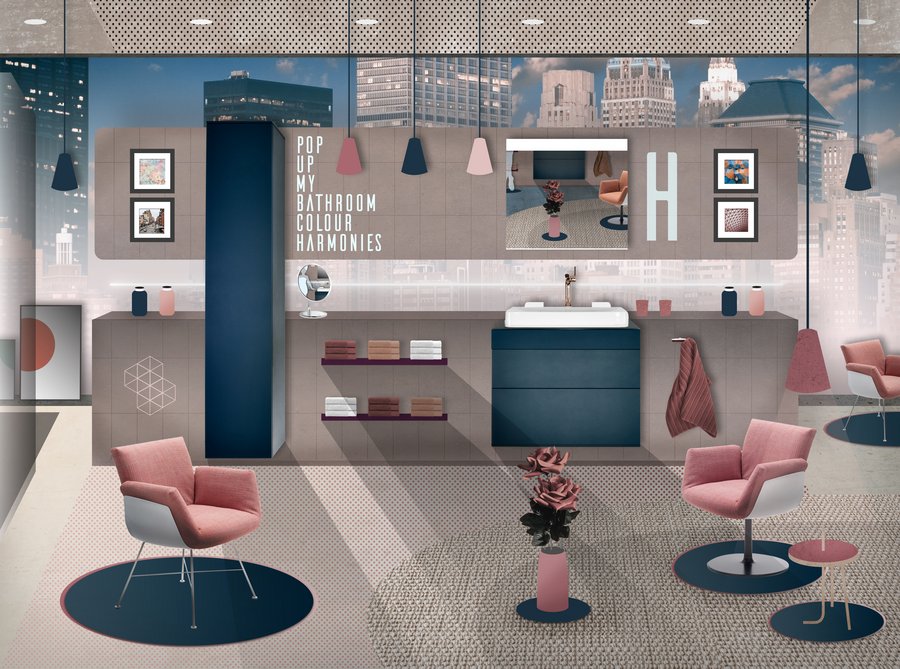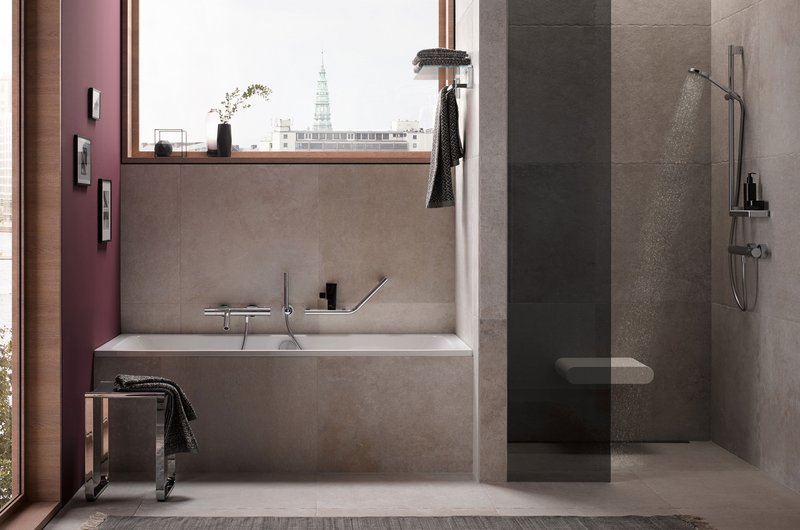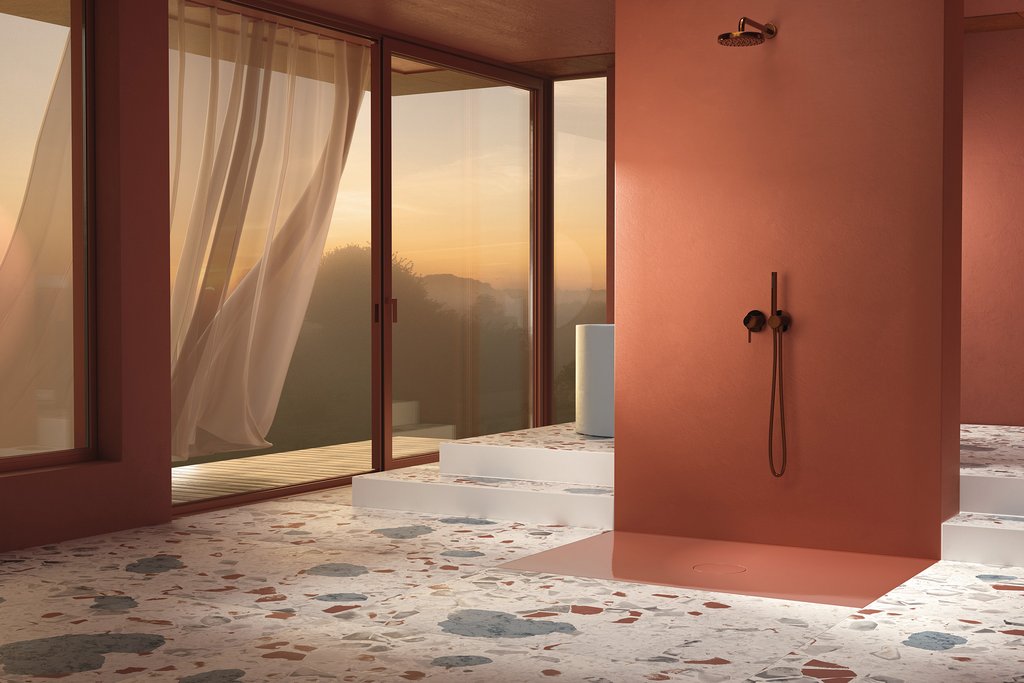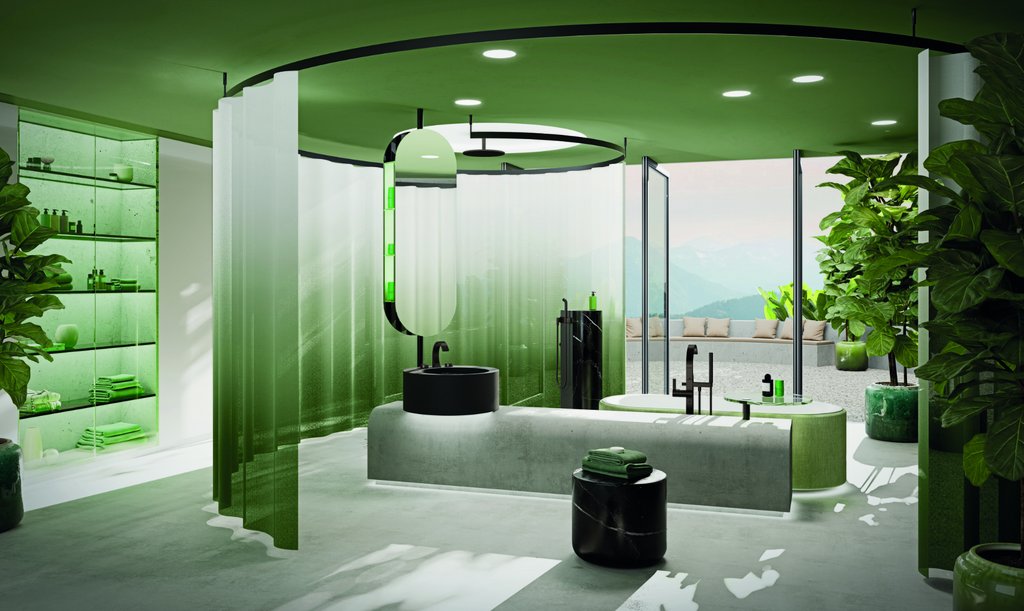The premier league of interior design: Colour harmonies create atmosphere

Illustration: Blörn Steinmetzler, Vereinigung Deutsche Sanitärwirtschaft e.V. (VDS)
Photo: Keuco
Anybody
who wants a suspenseful colour combination without the loudness of the bright bathroom
should consider trying the ultimate discipline of colourful bathroom design:
the combination of several colours to create a harmonious overall effect.
Colour chords, i.e. combinations of several colours of the same
intensity and quality, are probably the most challenging option – but also the
most individual. This could take the form of, say, a
mustard yellow sofa with blue and putty-coloured cushions set against a blue
wall. Like fashion, such colour chords are
a matter of taste, and they tend to meet with a far more enthusiastic reception
elsewhere in the interiors segment than they do in the bathroom. But when they’re done right, they create a
subtle, tasteful, multicoloured look that turns any bathroom into a highly
original gem.
Still, when it comes to bathroom
design, arrangements that comply with certain types of colour harmony tend to
meet with greater consensus. Colour
harmonies can be created out of neighbouring hues (e.g. blues and greens), by
using only “cool” colours (like blues and violets) or only “warm” shades
(orange, yellow, red) or by combining chromatic and achromatic colours (e.g.
various shades of blue combined with several shades of taupe and grey). The goal is to achieve an optimally balanced composition
that is perceived as pleasant, and the colours are usually selected on the
basis of colour wheels or colour cubes.
Colour chords and colour harmonies are possible
in all colour ranges. What’s important when it comes to designing a
bathroom is that one colour sets the tone while three to four others are used
to underpin the harmonious impression. Every
single nuance matters, and choosing the right products and materials is
extremely challenging for the bathroom planner. Various programs and apps are
available for helping with the selection of suitable colours (e.g. Capture CC
from Adobe or Colourpin II from NCS).


